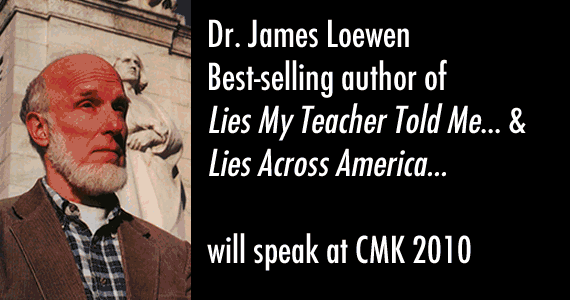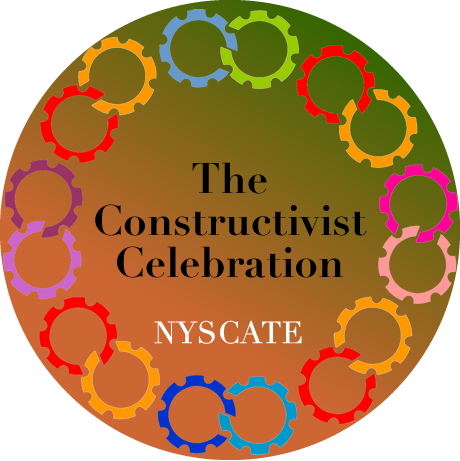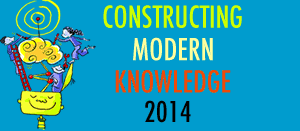It’s back!!!
Plans are shaping up for an amazing 3rd Annual Constructing Modern Knowledge summer institute, July 12-15, 2009 in Manchester, NH USA (near Boston).
In addition to master educators and edtech pioneers, the Constructing Modern Knowledge 2010 faculty includes history educator James Loewen and bestselling author of Lies My Teacher Told Me; popular provocateur and author, Alfie Kohn; MacArthur Genius and incomparable school reformer, Deborah Meier; and children’s author, illustrator and animator, Peter Reynolds. Cynthia Solomon, Brian Silverman, Sylvia Martinez (that’s me!), Gary Stager and John Stetson round out the amazing faculty.
Constructing Modern Knowledge is a minds-on institute for educators committed to creativity, collaboration and computing. Participants have the opportunity to engage in intensive computer-rich project development with peers and a world-class faculty. Inspirational guest speakers, pre-conference expedition and social events round out the fantastic event.
Constructing Modern Knowledge is about action, not listening to speakers. Attendees work and interact with educational experts committed to maximizing the potential of every learner. The rich learning environment is filled with books, computers, robotics materials, art supplies, toys and other objects to think with.
The real power of Constructing Modern Knowledge emerges from the collaborative project development of participants. Each day’s program consists of a discussion of powerful ideas, on-demand mini tutorials, immersive learning adventures designed to challenge one’s thinking, substantial time for project work and reflection.

21st Century educators need to develop their own technological fluency and understand learning in order to meet the changing needs and expectations of their students. Constructing Modern Knowledge will help participants enhance their tech skills, expand their vision of how computers may enhance the learning environment and leave with practical classroom ideas.
Spend four cool summer days in New England making puppets roar, robots dance, animations delight, movies move, simulations stimulate, photos sing and leave with memories to last a lifetime!
Each participant receives a suite of open-ended creativity software from Tech4Learning, LCSI, Inspiration Software, FableVision and other members of The Constructivist Consortium free-of-charge for use at Constructing Modern Knowledge and beyond. The software alone is worth the registration fee!
There is also a July 11th preconference Science and History Tour of Boston available for a nominal fee. Explore the future at the MIT Museum and visit the past during a private guided tour of the Boston Freedom Trail.
The institute is less than an hour’s drive from Boston in picturesque Manchester, New Hampshire. Free transportation is available from the convenient and affordable Manchester Airport. Discount hotel accommodation has been arranged at the institute venue.
Constructing Modern Knowledge is sensitive to the budgets of schools and educators by keeping registration costs affordable and by offering school/district team discounts. The institute is appropriate for all K-12 educators, administrators and teacher educators - private or public. CEUs are available for an additional fee.
Save $75 on early bird registrations! Register online now!
Sylvia
Reflections from previous years:


 Well, it’s official, there will be a Constructivist Celebration in partnership with the annual
Well, it’s official, there will be a Constructivist Celebration in partnership with the annual 